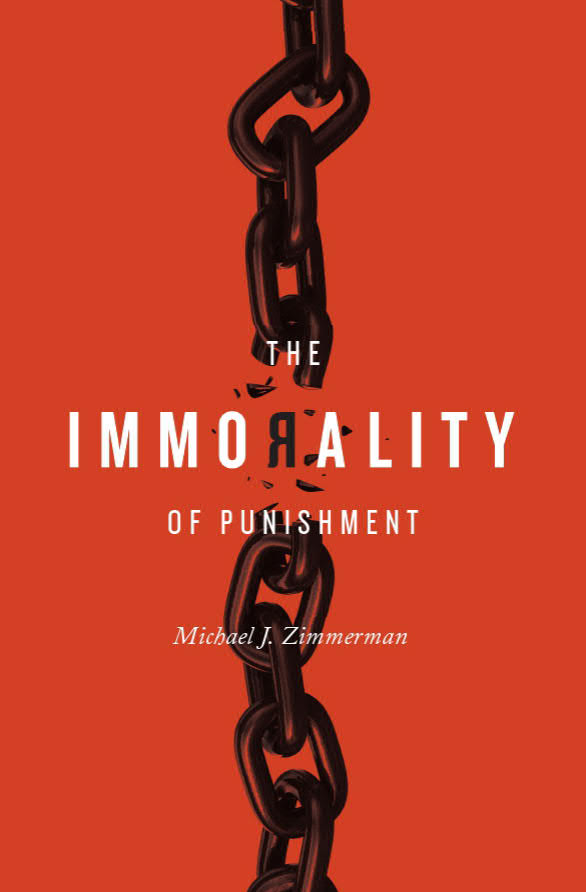In The Immorality of Punishment Michael Zimmerman argues forcefully that not only our current practice but indeed any practice of legal punishment is deeply morally repugnant, no matter how vile the behaviour that is its target. Despite the fact that it may be difficult to imagine a state functioning at all, let alone well, without having recourse to punishing those who break its laws, Zimmerman makes a timely and compelling case for the view that we must seek and put into practice alternative means of preventing crime and promoting social stability.
Comments
“The Immorality of Punishment is an engaging, astutely argued defense of the provocative position that, very likely, legal punishment can never be morally justified. Zimmerman argues that offenders turn out to be guilty on far fewer occasions than is typically thought owing to ignorance of wrong doing. Additionally, because punishment turns on what we are morally responsible for, and responsibility is incompatible with luck, luck’s pervasiveness in our lives undermines punishment’s justification. This elegantly written book is highly accessible to as wide an audience as possible. It reflects the work of an incisive critic and an altogether brilliant mind.” — Ish Haji, University of Calgary
“This book is a rigorous inquiry into the rationale for legal punishment. It has numerous good examples and brings a battery of arguments and intriguing analogies against conventional views. Its disturbing conclusions are an important challenge for the theory of punishment, and it will engage readers interested in moral responsibility as well as those concerned with the nature and justification of punishment.” — Robert Audi, University of Notre Dame
“The book is cleanly written, nicely organized, and has a powerful central argument. It is an important book on punishment by a philosopher who has done breakthrough work on one of the ideas underlying his attack on retributivism.” — Stephen Kershnar, SUNY Fredonia (Notre Dame Philosophical Reviews)













